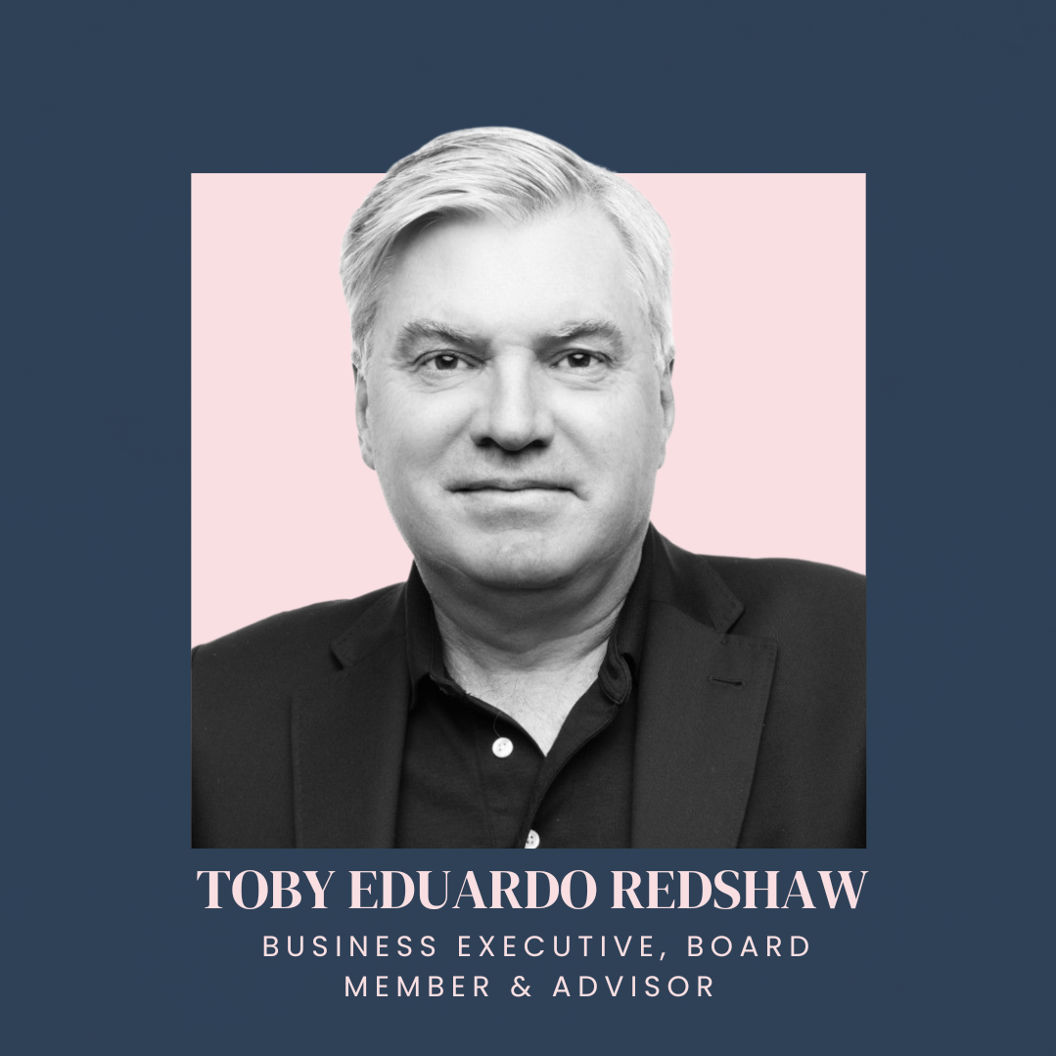CATEGORIES
Inclusion and Impact | People We Admire | TechnologyOverview:
- Toby Eduardo Redshaw recounts learning to leverage self-doubt and creating a path to resilience in his career.
- Growing up in a diverse environment shaped his perception, and early on, he learned the importance of networking.
- He shares insights on work motivation and effective communication skills during his formative experience at FedEx.
1. Tell us about your childhood and the values that shaped who you are today.
I had a fortunate childhood shaped by diverse cultures and experiences. Born in Mexico City to British parents—former military and business professionals—I grew up in a vibrant, multicultural environment. My school followed the British curriculum and had only 245 students, from kindergarten to 13th grade, with 35 nationalities represented. This small yet diverse setting in a bustling city of 28 million people gave me a strong foundation in cultural awareness and taught me to appreciate the richness of different cultures.
I was also fortunate to have a second set of parents. My best friend in Mexico became my adopted brother, and I often stayed at his house on weekends. When my parents moved to the U.S., I stayed with them, and they eventually introduced me as their second son. My biological mother, a World War II pilot, was tough and resilient, while my adopted father, a Cambridge PhD anthropologist and explorer. My biological father had a form of polio and overcame tremendous obstacles in life, setting a high bar for resilience. I have been lucky throughout my life to have people from whom I could learn a lot. In business, and earlier at university, I sought those people out, and several times, mentors took me under their wing and helped me.
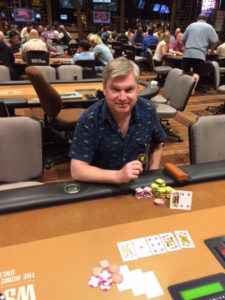
2. What are some pivotal moments in your life that influenced your career path?
After graduating early (at age 19) from university in the U.S., I struggled to get hired because I looked even younger, with people joking that my dad would need to attend interviews with me. So, I loaded everything I owned into an old car bought with a loan and drove back to Mexico City with only $80 in my pocket. I worked in advertising for a few years until the economy collapsed, but then I was lucky to land a job at FedEx just as the company began to focus on the international side of that sector.
FedEx was unique in that it did not care about age and genuinely valued its employees. Their philosophy was simple: take care of people, and they’ll take care of the service, which would drive profits. Despite having employees twice my age, I got my first management role, but the company’s inclusive approach was a great learning experience. FedEx combined process control, human motivation, and technology, providing an ideal environment to grow my career.
FedEx would give me slightly terrifying assignments and fill me with self-doubt. In the early days of the international side of FedEx, I was sent to Australia to see if a target company we were considering buying was a good option. I ran some forecasting, scheduling, and customer service stuff at the time. I had never done any M&A. I suggested they pick someone else and was told it was a long way away. I was the low guy on the totem pole, and I was it. Of course, I was filled with self-doubt. I was sure I would screw this up. So I approached a much senior person that I knew reasonably well and sought his advice, which was excellent. I only learned the key lesson later after my third big assignment where I was sure they had picked the wrong guy. This was not clever ego management or self-deprecation; it was clear they were asking me to do stuff beyond my skill/experience level, and the odds of failure were high.
The key lessons were anchored in self-doubt being a positive thing you can harness. It drove me to worry constructively, be hyperfocused on learning from and correcting errors, seek out mentors/senior advisors, form teams especially to cover my gaps, and listen, really listen to the folks on the ground who were close to the real work. Without the initial self-doubt, I am sure I would not have approached the assignments in such a constructive way.
After three of these, I realized the company was doing this to me on purpose, giving me things where I was underqualified, where I would fall short so I would learn and grow. How can you not love a company that does that intentionally and embraces the constructive side of failing/stumbling? Again, I am so lucky to have been there then.
Along the way, the mentors I sought taught me much. Two of the things that have served me well are understanding how program management works–and how the lack of it can damage programs–and a simple one that you can’t always do but should when you can: “the best business process bar none is the face-to-face conversation.”
At FedEx, to become a Managing Director, you could not apply for the job despite the posting of all jobs internally and hiring-from-within policy. You had to be nominated by an officer. I was nominated four times, reached the final interviews, which were limited to four candidates, and failed to win each time. Self-doubt crept in again; this was surely the end of chances for Toby. Then, out of the blue, a fifth opportunity arose. I landed the Managing Director role, and I was shipped off to help drive a turnaround of our Asia business.
That experience taught me three things. One, the future always brings opportunity, and nothing is ever over. Two, harness self-doubt to grow; that is your best bet. Three, when self-doubt creeps in and the panorama looks bleak, find a mentor or smart person to help you double-check your perspective. Mine was clearly wrong and negative, which is what self-doubt can do—it can be a machine for cascading negativity.
3. What do you consider the most significant change in the tech industry over the past decade, and how much do you think that will impact the future?
Back in 2016, I joined Verizon to mainly lead the 5G tech strategy, a role that helped transform telecommunications from complicated systems of wires and boxes to cloud and edge computing with seamless connectivity. Around the same time, the founder of the World Economic Forum at Davos shared that we were entering the fourth industrial revolution, a period that would reshape industries, companies, and nations. When I spoke with C-level executives, I emphasized how technologies like AI, IoT, VR, cloud, and big data were about to accelerate and change everything.
Fast forward to today, AI has taken off at lightning speed, and we’re on the brink of a huge transformation. Over the next five to eight years, we’ll see a more proactive, predictive, and personalized world. Imagine a future where healthcare, travel, and education are smarter and more efficient. Businesses will also benefit from lower costs and better results. It’s an exciting time, and I truly believe we’re just getting started.
4. How does your company, Versus Edge, maintain its competitive edge in the market?
To maintain a competitive edge, two factors are essential: agility and innovation. In today’s fast-evolving technological and sociological landscape, companies must remain agile, able to pivot and adapt quickly. Innovation is just as crucial, but simply talking about it is not enough. Companies must actively shape their teams, encourage fresh behaviors, and foster an environment where innovation is supported and celebrated. This means embracing constructive failures, like FedEx did with me, and making smart bets that may not pay off. Innovation done well, includes failures.
However, many businesses fail to support innovation by punishing failure instead of promoting learning from it. Innovation inherently involves risks and mistakes, but without a culture that encourages learning from these failures, even the best ideas cannot succeed. Agility, innovation, and the ability to take action and make things happen are all key to staying ahead in the competitive market.
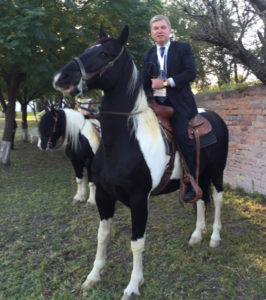
5. How do you ensure that companies are still focused on the people and not just the technology when it comes to employing Generation Z?
When I started Verus Advisory–and in everything I have ever led–my focus was on building an inclusive environment focused on human experience. Sure, technology is a game-changer, but it’s only a tool. What truly matters is how we use it to enhance our lives, improve outcomes and make things more efficient. Our focus is always on people—whether that is offering flexibility, aligning everyone with company values, or ensuring innovation improves the human experience. Technology enables us, but people drive success.
While AI makes us more productive, it might lead to fewer job opportunities in the long run. The real challenge for companies will be focusing on their people. Those who treat employees well, care about their communities, and align their values with sustainability will thrive. The size of the Gen Z spending cohort will be bigger than any in the history of the Earth. That ‘sustainability, human-first, do the right thing by me’ approach will permeate all brands because a large portion of GenZ will insist on this. Walmart, a deeply cost-conscious company, has already invested heavily, knowing this is coming. That gives me optimism for the future. That’s why I’m excited about it. Thanks Gen Z!
6. What does leadership mean to you and how have you tried to redefine it throughout your career?
My approach to leadership has evolved over the years. Early on, I felt the need to be in charge, but as I grew older, I found more joy in being a catalyst. The president of FedEx and a small book by Andy Grove taught me the value of networking.
Focusing on improving things by helping/growing others rather than taking control is a force multiplier. Of course, there are times when you have to be the captain of the ship, but multiplying your impact through teams and networks is your north star. You are everything you bring to the table plus your network.
The ‘secret’ to networking is really just two things. One, always being useful is the foundation. You become part of other’s networks because you are useful. Your network is really adding up how many networks you are in as a valued, useful node. The second element is a network is a living, breathing thing that requires maintenance to keep it alive. A person in your network needs periodic contact to remain in your network. I actively, purposefully periodically just check in with people in my network. When I read or find something interesting/useful, I think of who in my network this would be useful for, and I check in and share it with them.
Focusing on improving things by helping others rather than taking control is often the smarter path. When someone asks you for help with something, never say no. Say yes if you can, but if not yes, tell them you are not sure, but to give a couple of days, and think through your connections/network and see if you can help. You will be surprised how often you actually can help. If not, you quickly get back to them and tell them you tried, but you came up empty-handed, which is so much better than just a straight ‘no.’
Today, in all my work, leadership is about understanding technological changes and adapting, innovating, and learning. The key to tomorrow is understanding where tech is heading, how change works, and embracing collaborative intelligence beyond traditional hierarchies.
One other thing worth mentioning that I learned from my 17 years at FedEx is that a motivated and engaged workforce can be a massive differentiator and source of competitive output. Most companies have very foggy, obtuse ways of managing that and fail to manage incentives and disincentives properly, leading to behaviors that are not properly aligned, which means their culture is suboptimal. FedEx, in the early days, had a brilliant culture. In managing that well, we had massively improved outcomes and an improved cost structure. Of course, that was in conjunction with being masters of smart process and program design/management.
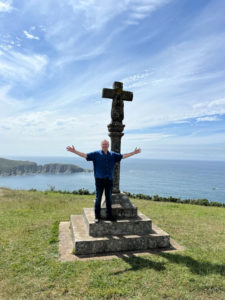
7. What do you think is one characteristic necessary for any venture to be successful?
I focus on four key factors, which I call “Toby’s Four Ts,” at the early stage of any venture. First and foremost is the team. No matter how clever or shiny the idea is, without a strong team, success is unlikely. I look for people who have experienced failure and learned from it. It is not about being 100% successful all the time; startups and businesses are tough, but resilience is key. When setbacks happen, reflecting on the lessons learned, documenting them, and growing from the experience is important.
The other three Ts are technology, trajectory, and traction. In today’s world, technology plays a critical role in any venture. I need to understand what the technology is and its potential. The trajectory refers to where the venture is heading and its long-term goals. Lastly, traction shows the momentum the venture has gained, whether it’s through positive feedback or early sales. But above all, the team is the most critical factor.
8. What challenges did you face in your career and how did you overcome them?
In my very early days at FedEx I missed out on a prestigious award due to a mix-up. For pretty much the only time in my career, I was angry, completely demotivated, and unproductive. It lasted a week. Being a bit of a geek, I analyzed that week and realized that when motivated, my productivity was literally 10 times higher. That made me think hard about motivating myself and others, and how important that is. I also learned not to attach my ego to my work. I am a fan of stealing smart stuff from others. Colin Powell said, “Don’t attach yourself to your work at a heart and ego level.” Today, you should be using GenAI to learn from everywhere.
Years later, I found a mentor at FedEx who taught me the importance of face-to-face communication in business. He also showed me the difference between being smart and being effective. Smart grows on trees and is easy to find, but effective leaders are rare. The most effective people get things done and lead well. Of course, being both smart and effective are a super combo. In the West, we often confuse being articulate with being smart, and being smart with being effective.
Another key takeaway for me was building a sort of personal board of directors (stole that term from Anna Catalano)—a trusted group of advisors you can turn to for advice. This is not just about mentorship; it is about having a sounding board, somewhere to check and expand your thinking and perspective.
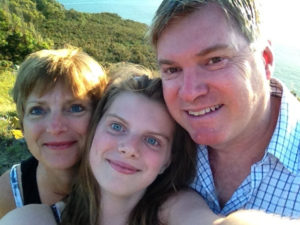
9. How did you overcome self-doubt, and Is there anything you’re particularly grateful for in your journey so far?
I have talked about that above, but it’s worth mentioning something I’m both lucky and very, very grateful for. Both my mother and my ‘adoptive mother’ were incredible role models who taught me that how you show up matters, regardless of personal struggles or a tough day. You cannot let those challenges affect your performance; you need to leave them at the door. My adoptive dad and my dad were both paragons of resilience and taught me that the real flavor in life lives inside challenges. The easy stuff lacks flavor.
Another early mentor was an expert in program management. He taught me that while it may seem dull, mastering the basics is crucial in any role. This involves understanding the objective, tasks, resources, talent, and schedule and proactively managing them. Effective program management is about staying on track and adjusting early when things go off course. I am very grateful for that.
One of the most important lessons I have learned is not to fight against self-doubt. It is a waste of time. Harness your self-doubt, as I have said above. Be self-critical and focus on your growth, but don’t let self-doubt hold you back. When I became the youngest managing director in FedEx history, it was not about being overconfident. It was more about recognizing my capabilities and pushing past the fear.

10. Do you have anything on your bucket list or any exciting upcoming projects for the coming year?
I see tremendous opportunity in biotech, particularly at the intersection of big data, technology, and AI, where transformative change is happening. One project I’m incredibly excited about is Vantiq, a company I am on the board of. They are focused on real-time data integration and intelligence. Recently, we received press coverage with Mayo Clinic for a breakthrough in neonatal care, where we applied this technology to save babies’ lives. By recognizing patterns and alerting doctors before critical issues arose, we were able to intervene in advance. This is a perfect example of how technology can make a profound impact, and I am thrilled to be involved in such meaningful work.
Conclusion:
Toby Eduardo’s journey highlights how growing among people of diverse backgrounds can lay a solid foundation for growth. His commitment to adapting to technological changes and a progressive leadership style highlights what is needed to create a real impact.

